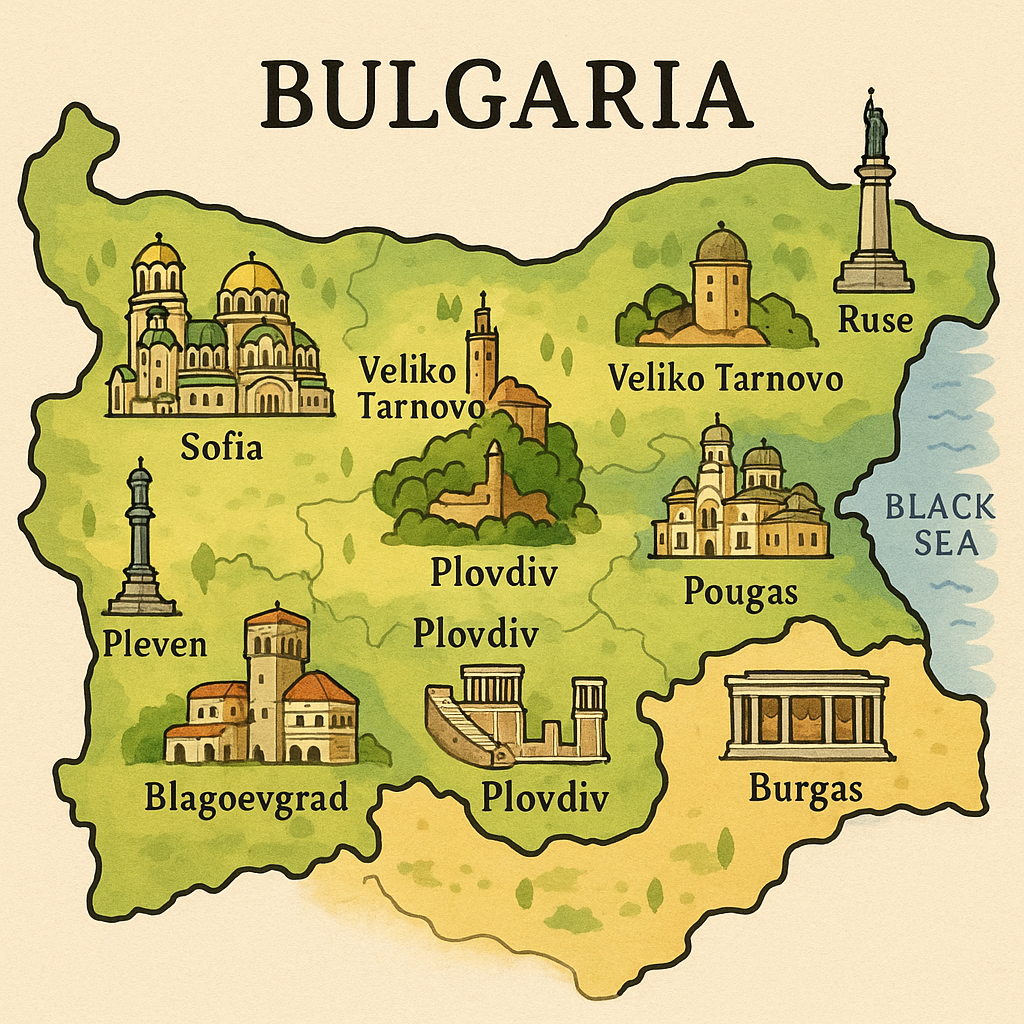
Bulgaria: A Hidden Gem in Southeast Europe
Bulgaria is a fascinating country located in Southeast Europe, bordered by Romania to the north, Serbia and North Macedonia to the west, Greece and Turkey to the south, and the Black Sea to the east. With a rich history dating back thousands of years, Bulgaria offers a unique blend of ancient cultures, stunning natural beauty, and modern urban life. It's one of Europe’s oldest countries, having been founded in 681 AD.
The country is known for its majestic mountains, beautiful Black Sea coastline, charming villages, and vibrant cities like Sofia (the capital), Plovdiv, and Varna. Bulgaria also boasts impressive historical landmarks, including Thracian tombs, Roman amphitheaters, medieval fortresses, and Orthodox monasteries.
One of the country’s most notable features is its affordability compared to many other European destinations. Whether you're exploring cultural sites, relaxing on the beach, or hiking in the mountains, Bulgaria offers great experiences without breaking the bank
Language
The official language of Bulgaria is Bulgarian, which uses the Cyrillic alphabet. English is widely spoken in larger cities, tourist areas, and among younger generations, but learning a few basic Bulgarian phrases can be helpful and appreciated
Currency
The official currency is the Bulgarian Lev (BGN). Although Bulgaria is a member of the European Union, it does not use the euro. Credit and debit cards are commonly accepted in cities, but cash is useful in rural areas or small shops.
Time Zone
Bulgaria operates in the Eastern European Time (EET) zone, which is UTC+2. During daylight saving time (late March to late October), it follows Eastern European Summer Time (EEST), which is UTC+3.
Public Transport
Bulgaria has a well-developed and affordable public transportation system. Cities like Sofia have metro systems, buses, and trams. Intercity travel is easy with buses and trains connecting most towns and tourist destinations. Taxis are available and relatively inexpensive, but it's best to agree on a fare or ensure the meter is running.
Food
Bulgarian cuisine is a delightful mix of Balkan, Mediterranean, and Ottoman influences. Common ingredients include fresh vegetables, yogurt, cheese (especially the white brined "sirene"), and grilled meats. Traditional dishes include banitsa (a pastry with cheese), shopska salad, kebapche, and hearty stews. Don’t miss trying rakia, a local fruit brandy.
The best time to visit
Bulgaria depends on your interests. May to September is ideal for warm weather, beach trips and hiking. For skiing and snowboarding, the winter months (December to February) are perfect, especially in resorts like Bansko and Borovets.